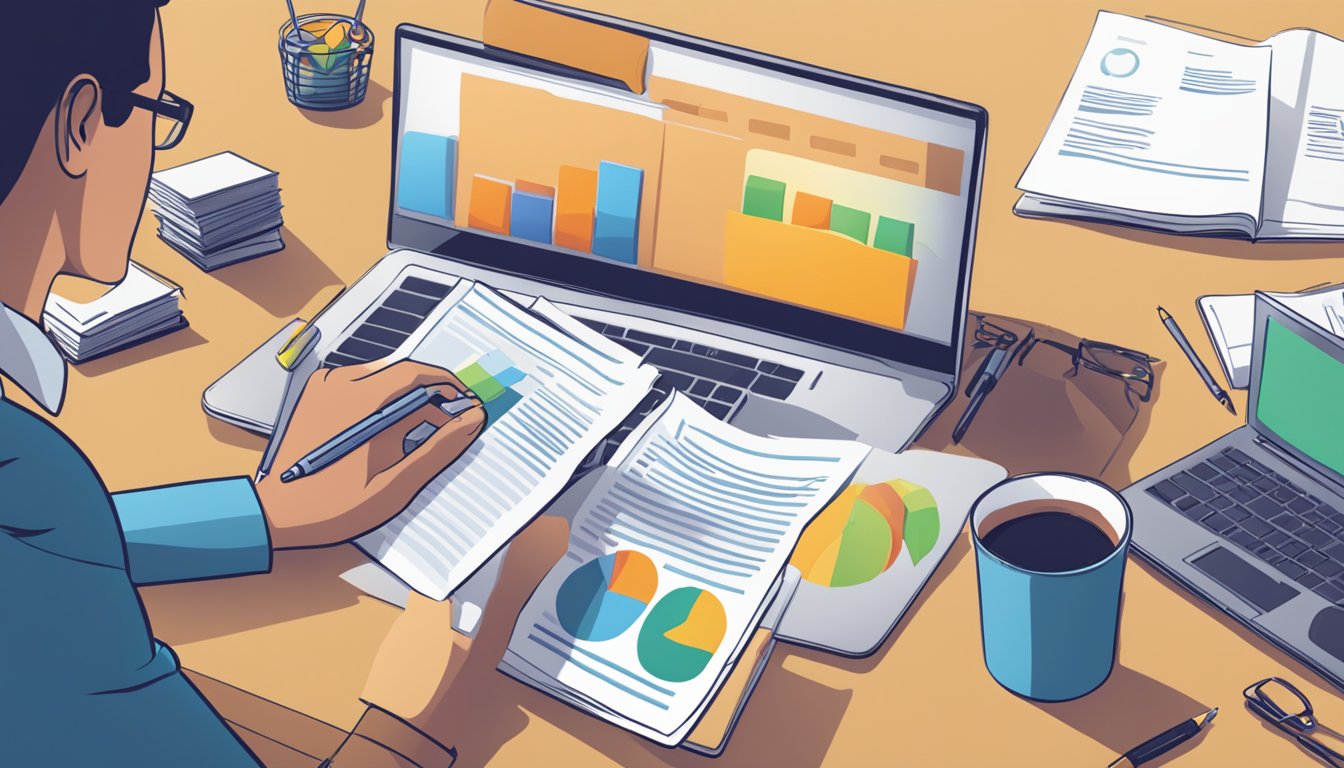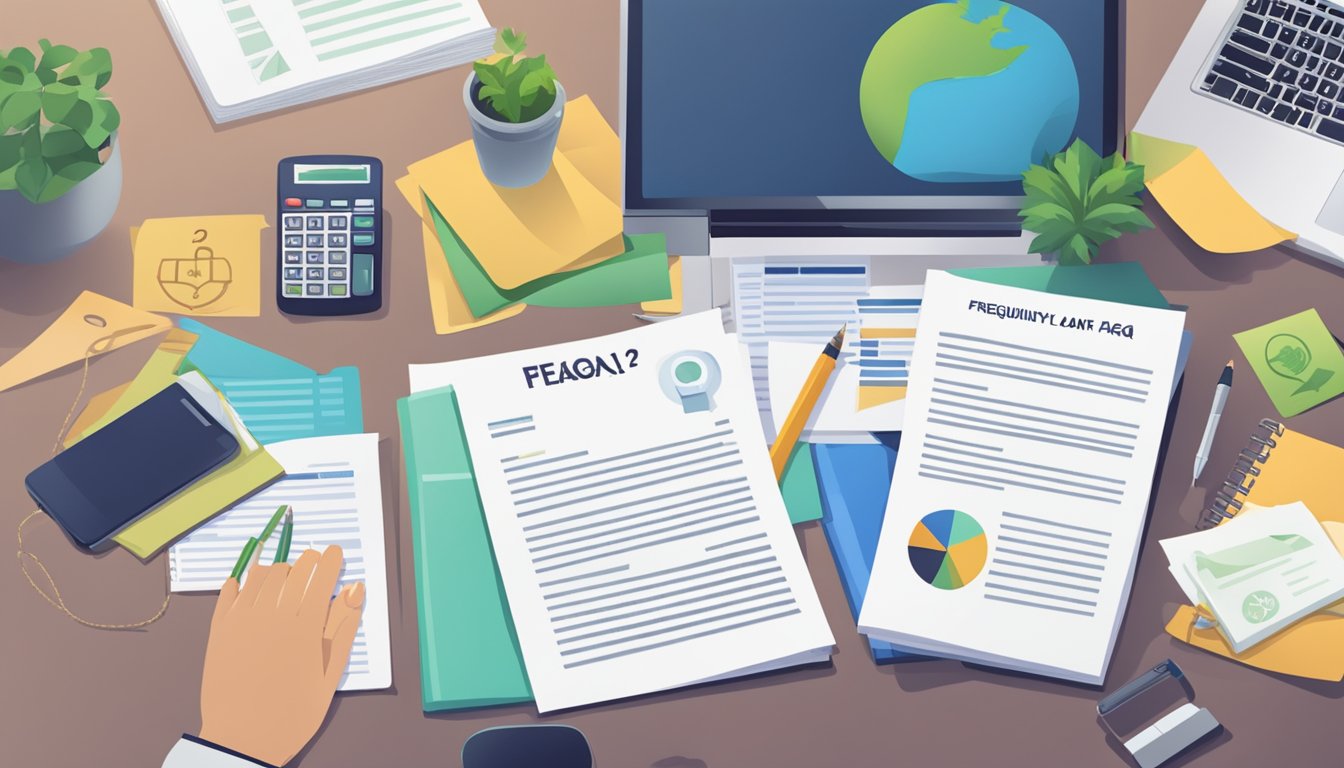Personal loans are a popular option for Singapore citizens and permanent residents looking to borrow money for various reasons, such as paying off debt, financing a big purchase, or covering unexpected expenses. However, before applying for a personal loan, it’s important to understand how they work and what to expect. In this article, we’ll answer some frequently asked questions about personal loans in Singapore.

Understanding Personal Loans A personal loan is a type of loan that allows you to borrow a fixed amount of money and pay it back over a set period of time, usually with interest. Unlike credit cards, personal loans have a fixed repayment schedule and interest rate, making it easier to budget and plan for payments. Personal loans can be secured or unsecured, meaning you may or may not need to provide collateral, such as a car or house, to qualify for the loan.
Applying for a Personal Loan To apply for a personal loan in Singapore, you must be at least 21 years old and have a minimum annual income of $20,000 to $30,000, depending on the lender. You’ll need to provide personal and financial information, such as your name, address, employment details, and income. Your credit score and history will also be taken into consideration when determining your eligibility and interest rate.
Key Takeaways
- Personal loans allow you to borrow a fixed amount of money and pay it back over a set period of time with interest.
- To apply for a personal loan in Singapore, you must meet certain eligibility requirements and provide personal and financial information.
- Understanding the terms and conditions of a personal loan and comparing offers from different lenders can help you find the right loan for your needs.
Understanding Personal Loans

If you’re considering taking out a personal loan, it’s essential to understand what it is and how it works. In this section, we’ll cover the basics of personal loans, including secured vs unsecured loans, and how to determine the right loan for you.
What Is a Personal Loan?
A personal loan is a type of loan that you can use for any purpose, such as consolidating debt, making a large purchase, or financing a home renovation. Personal loans are typically unsecured, meaning you don’t need to provide collateral such as a house or car to secure the loan. Instead, the lender will evaluate your creditworthiness, income, and other factors to determine whether you qualify for the loan and at what interest rate.
Secured vs Unsecured Loans
As mentioned, personal loans are typically unsecured, but you may also come across secured personal loans. Secured loans require collateral, such as a house or car, to secure the loan. While secured loans may offer lower interest rates, they also pose a higher risk to the borrower as the lender can seize the collateral if you fail to repay the loan.
Determining the Right Loan for You
When considering a personal loan, it’s essential to determine the right loan for you. The loan amount, interest rate, EIR (Effective Interest Rate), loan tenure, and loan calculator are all factors to consider when choosing a personal loan. Your credit score will also play a significant role in determining the loan amount and interest rate you qualify for.
It’s important to assess your financial situation and determine how much you can afford to borrow and repay. Consider your credit score, income, and expenses to determine the loan amount and tenure that works best for you. Use loan calculators to compare different loan options and determine the best loan for your needs.
In summary, personal loans can be a useful tool for financing large purchases or consolidating debt. However, it’s essential to understand the risks and costs associated with personal loans and to choose the loan that best fits your financial situation.
Applying for a Personal Loan

If you’re considering applying for a personal loan, you’ll want to know what to expect from the process. Here’s what you need to know about eligibility, documentation, fees, and repayments.
Eligibility and Documents Required
To apply for a personal loan, you’ll need to meet certain eligibility requirements. These can vary depending on the lender, but generally, you’ll need to be a Singaporean or Permanent Resident, be at least 21 years old, and have a minimum income of $20,000 per year. You’ll also need to provide some documentation to support your application, including your NRIC, computerised payslip, and income tax notice of assessment.
If you’re self-employed, you’ll need to provide additional documentation, such as your business registration and financial statements. Salaried employees can use MyInfo or SingPass to automatically fill in their application with their personal information.
The Application Process
The application process for a personal loan is generally straightforward. You’ll need to fill out an application form, provide the required documentation, and wait for approval. This can take anywhere from a few hours to a few days, depending on the lender.
Once your loan is approved, you’ll need to sign a loan agreement and provide your bank account details. Funds are typically disbursed within a few business days.
Understanding Fees and Repayments
When applying for a personal loan, it’s important to understand the fees and repayment terms. Most lenders charge an origination fee and processing fee, which can range from 1% to 5% of the loan amount. You’ll also need to make monthly repayments, which will include both principal and interest.
The repayment amount will depend on the loan amount, interest rate, and loan term. Early redemption may be available, but may come with additional fees. Be sure to check your payment due date and make payments on time to avoid late fees.
Overall, applying for a personal loan can be a great way to get the funds you need for a variety of purposes. By understanding the eligibility requirements, application process, and repayment terms, you can make an informed decision about whether a personal loan is right for you.
Frequently Asked Questions

What are the potential drawbacks of taking out a personal loan?
Personal loans can be a great way to finance a large purchase or consolidate debt, but there are some potential drawbacks to keep in mind. One of the main drawbacks is that personal loans often come with higher interest rates than other types of loans, such as secured loans. Additionally, if you miss payments or default on your loan, it can negatively impact your credit score and make it more difficult to obtain credit in the future.
How can I successfully apply for a personal loan with a bank?
To successfully apply for a personal loan with a bank, you should start by checking your credit score and ensuring that it is in good standing. You should also gather all of the necessary documentation, including proof of income, employment history, and any other relevant financial information. When filling out your application, be sure to provide accurate and complete information, as any discrepancies or omissions could result in your application being denied.
What are the typical repayment terms for a personal loan?
The repayment terms for a personal loan can vary depending on the lender and the specific loan product. However, most personal loans have a fixed repayment term of between one and five years. During this time, you will be required to make regular monthly payments until the loan is paid off in full.
Will obtaining a personal loan impact my credit score?
Yes, obtaining a personal loan can impact your credit score. When you apply for a loan, the lender will perform a credit check, which can temporarily lower your credit score. Additionally, if you miss payments or default on your loan, it can have a negative impact on your credit score.
Is there a limit to how frequently I can apply for personal loans?
There is no limit to how frequently you can apply for personal loans, but it is important to keep in mind that each application will result in a hard inquiry on your credit report. Too many hard inquiries can lower your credit score and make it more difficult to obtain credit in the future.
After settling my current personal loan, how soon can I apply for a new one?
There is no set timeframe for how soon you can apply for a new personal loan after settling your current one. However, it is important to keep in mind that applying for too many loans in a short period of time can negatively impact your credit score. Additionally, you should only apply for a new loan if you are confident that you can afford the monthly payments and will be able to pay off the loan in full.




